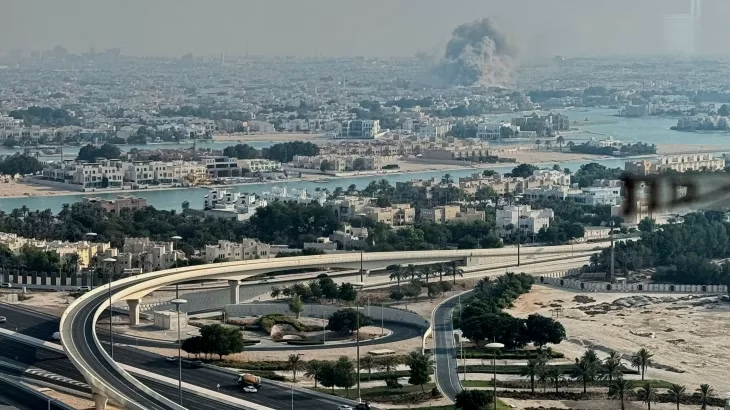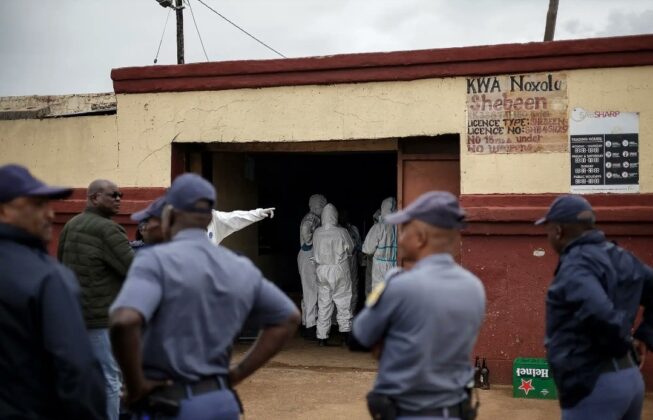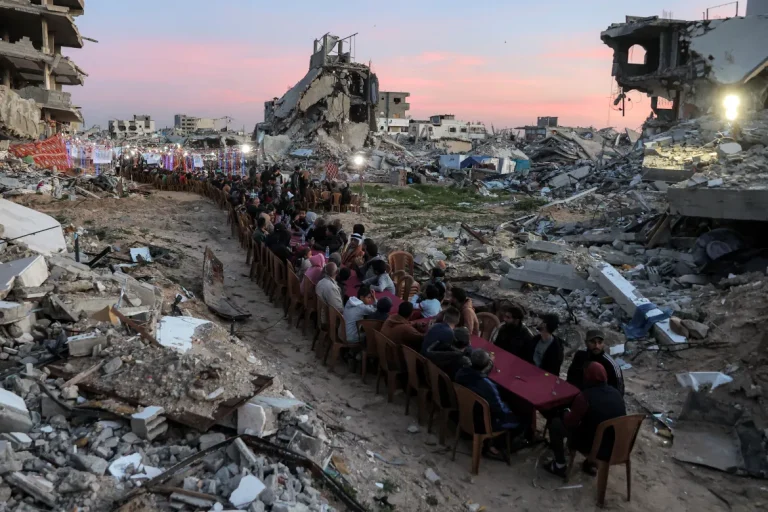
Qatar vows to continue its mediation efforts for peace in Gaza despite Israeli attacks. Image Credit: AI Jazeera
Qatar Mediation Role Stands Strong Despite Treacherous Attacks
(The Post News) – Qatar Mediation Role has once again taken center stage in global diplomacy as Qatari Prime Minister Sheikh Mohammed bin Abdulrahman Al-Thani vowed that nothing would deter the country from fulfilling its historic commitment to peace negotiations. This bold declaration came hours after Israel targeted Hamas leaders in Doha, a move that threatened to derail ongoing peace efforts.
Al-Thani, addressing the press in Doha, reiterated that mediation is part of Qatari identity and stressed that Qatar will remain steadfast in its diplomatic mission despite the recent escalation.
Qatar Mediation Role Faces Treacherous Challenge
“Qatar has spared no efforts and will do everything it can to stop this war in Gaza,” said Al-Thani during a news conference. He sharply criticised Israeli Prime Minister Benjamin Netanyahu, accusing him of sabotaging peace opportunities and engaging in what he called “state terrorism.”
Netanyahu defended the Israeli strike, claiming it was “entirely justified” following an attack in Jerusalem and the deaths of four Israeli soldiers in Gaza. According to Al-Thani, US officials informed Qatar of the attack only ten minutes after it began — an action he described as “100% treacherous.”
Global Importance of the Qatar Mediation Role
The Qatar Mediation Role is not new. Doha has served as a bridge between conflicting parties for years, working alongside Cairo and Washington to negotiate ceasefires and humanitarian corridors in Gaza. Analysts believe that Qatar’s unique position, with open communication channels to both Hamas and Western powers, makes it indispensable in any lasting peace agreement.
Legal and Political Response
Qatar has set up a legal team to investigate the attack and formulate a comprehensive response. Al-Thani confirmed that all necessary measures would be taken to protect the sovereignty of the Gulf nation and its ongoing diplomatic work.
This incident has sparked discussions at the United Nations, where Qatar is expected to raise concerns about the violation of international law and the potential consequences for global peace mediation efforts.
Qatar Mediation Role and International Reactions
The Qatar Mediation Role has earned praise and criticism in equal measure. The United States has publicly acknowledged Qatar’s role in securing hostage exchanges and providing humanitarian aid to Gaza. However, Israel’s government continues to express distrust, arguing that Qatar’s proximity to Hamas undermines security efforts.
Despite this, Qatar remains a key player in diplomacy. Regional experts argue that removing Qatar from the negotiating table would create a vacuum that could worsen the crisis and prolong civilian suffering.
Why Qatar Mediation Role Matters Now
The current war in Gaza has resulted in thousands of casualties and severe humanitarian crises. Qatar’s consistent position as a mediator offers a glimmer of hope for a diplomatic solution. Its neutrality and commitment to dialogue are essential at a time when tensions are at an all-time high.
The Qatar Mediation Role is a testament to the country’s resilience and determination to bring about stability, even when under direct attack. Al-Thani’s message was clear: nothing, not even targeted strikes, will deter Qatar from fulfilling its mission of peace.
The Qatar Mediation Role is more critical than ever in today’s tense geopolitical climate. Sheikh Mohammed bin Abdulrahman Al-Thani’s unwavering commitment sends a powerful message to the world: diplomacy will not be silenced by aggression. As Qatar moves forward with its legal and diplomatic responses, the international community will be watching closely to see whether these efforts can bring much-needed relief to the people of Gaza.



